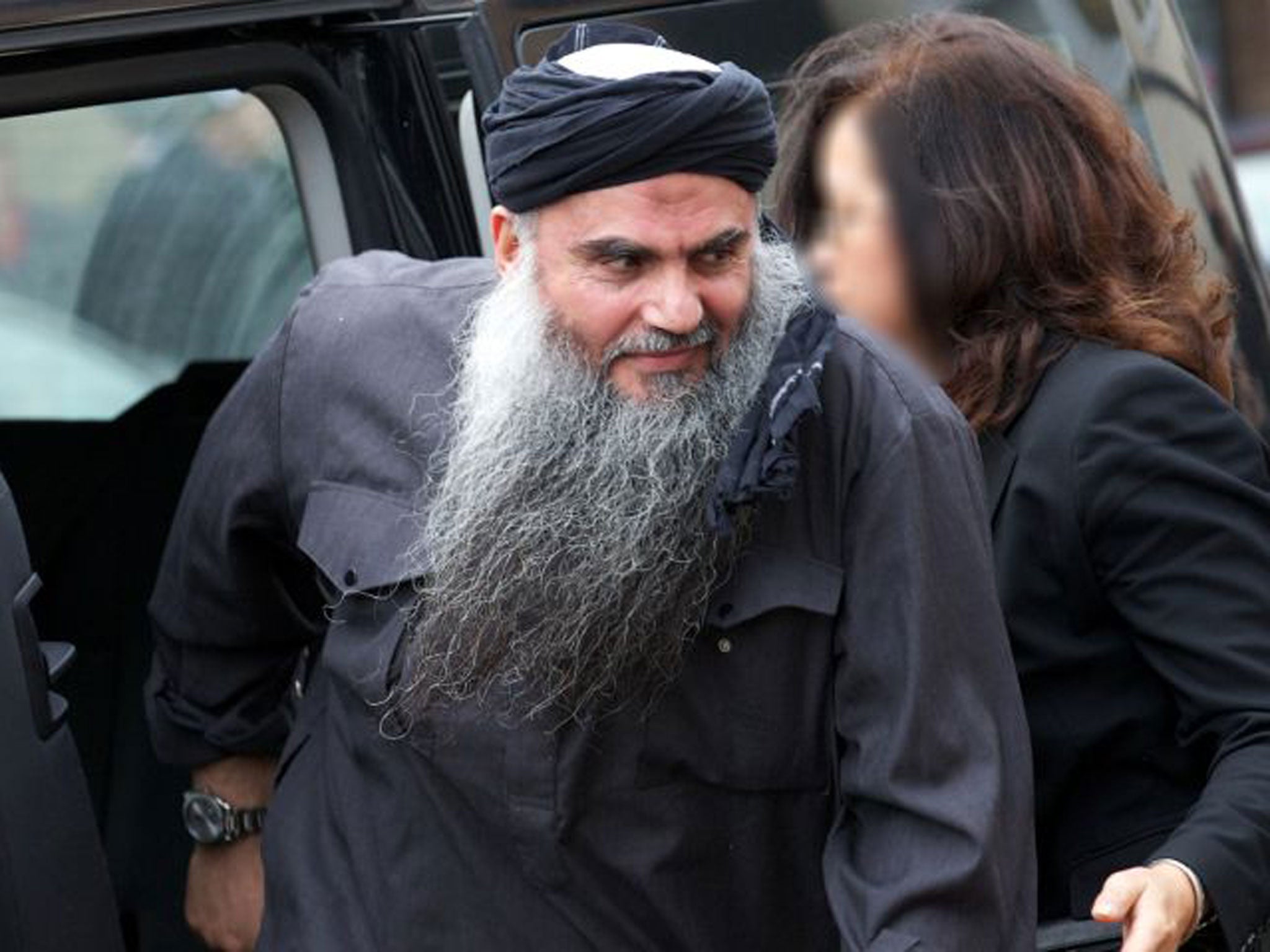Abu Qatada deportation: Cleric expected to be flown to Jordan overnight on military plane
Home Office prepares to fly radical preacher out of the country on military flight

Abu Qatada’s 20-year stay in the UK is finally about to come to an end, as the Home Office is understood to be preparing to deport the radical Islamist cleric on a military flight tonight.
The Government has been actively trying to remove Qatada for about eight years, and will succeed at 2am on Sunday morning when the 53-year-old is driven straight from Belmarsh Prison to RAF Northolt, west London.
On arrival in Jordan he will be taken to the maximum security Muwaqqar prison in a military zone near the capital Amman. It is understood his family will not be travelling with him.
The legal battle to deport Qatada has cost the taxpayer at least £1.7 million, including around £650,000 on his legal aid alone. The cleric, who originally sought asylum in the UK on the grounds that he had been tortured by Jordanian authorities, has fought a return to the Middle East on the grounds that he would not receive a fair trial.
That resistance ended two weeks ago when the UK and Jordan ratified a treaty ensuring evidence in a trial against Qatada would not be admissible if there were “serious and credible allegations that a statement from a person has been obtained by torture”.
A judge previously described Qatada as “Osama bin Laden's right-hand man in Europe”, and the former head of counter-terrorism at Scotland Yard Bob Quick called him “a very dangerous man with significant influence”.
His use of EU law to avoid deportation has been used as an argument in favour of the UK withdrawing from the European Convention on Human Rights altogether. While living in a state-funded home along with his wife and five children, Qatada has committed no discernible crime beyond breaching bail conditions regarding mobile phone use, which landed him in Belmarsh.
Qatada's lawyer Edward Fitzgerald QC had previously told the Special Immigration Appeals Commission that his client, also known as Omar Othman, was prepared to leave if the treaty was enshrined in law.
"There's never been a time in the last 12 years that Mr Othman and his family could safely return to Jordan," he said. "For a long period of time, he has made it clear that he wishes to leave lawfully."
Immigration judges nonetheless refused to release the cleric from Belmarsh after they heard "jihadist files" were found on digital devices in his home.
A USB stick found in the home contained videos made by the "media wing of al-Qa'ida".
Qatada has been living in the UK since he arrived here on a forged passport in September 1993. Beyond the Home Office’s published legal expenditure it is difficult to estimate how much this has cost the taxpayer, and it is not known whether the cleric’s wife and family will continue to be supported by the state in their London home.
Subscribe to Independent Premium to bookmark this article
Want to bookmark your favourite articles and stories to read or reference later? Start your Independent Premium subscription today.

Join our commenting forum
Join thought-provoking conversations, follow other Independent readers and see their replies